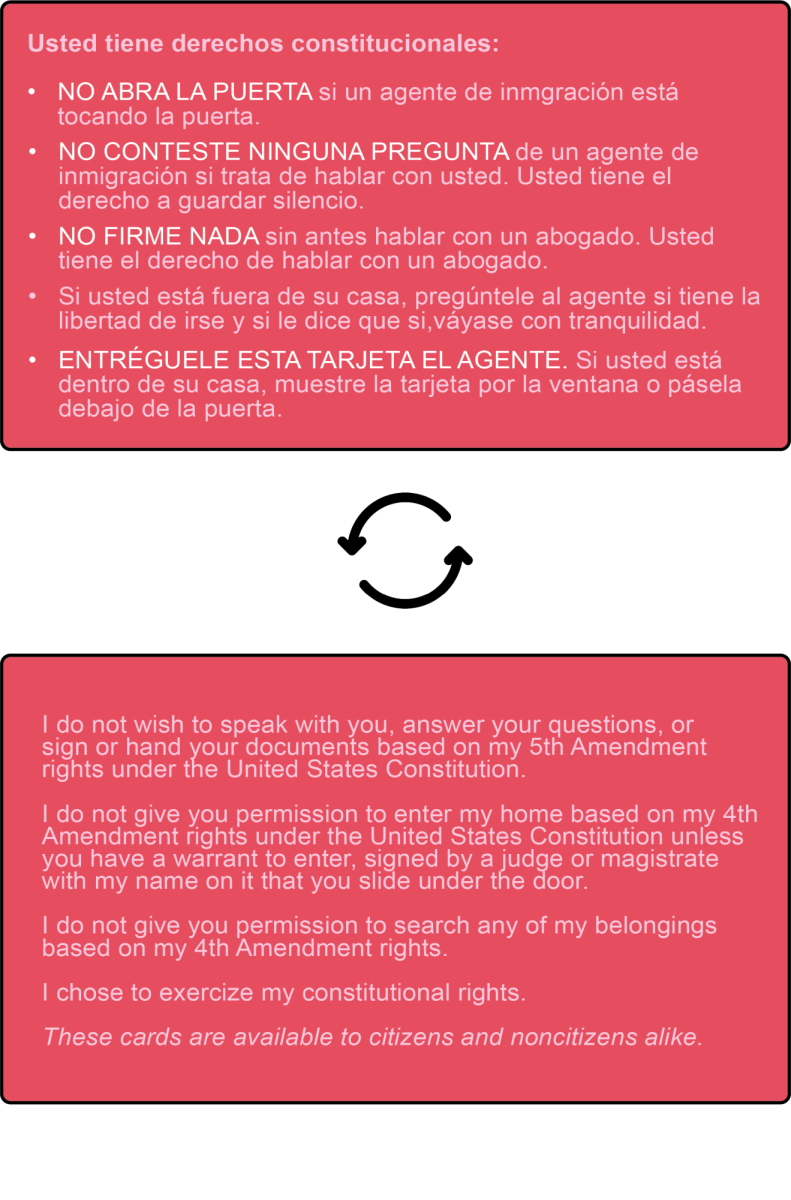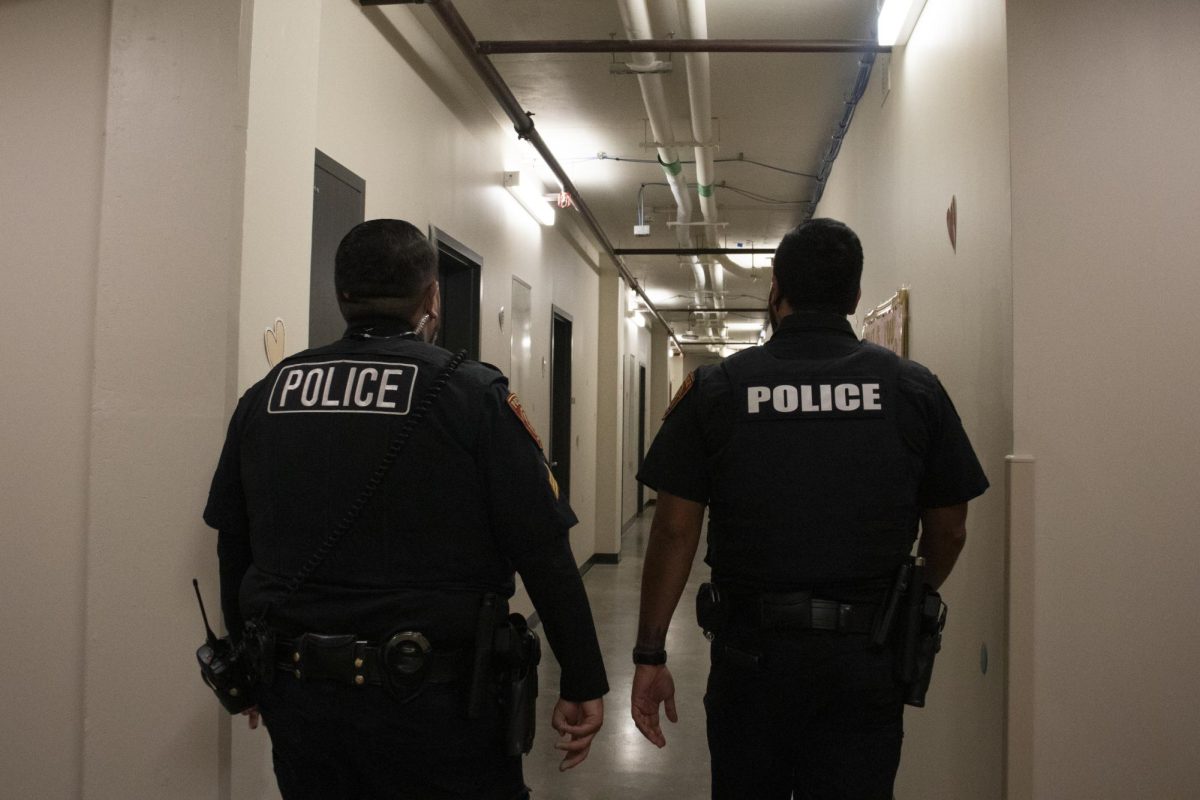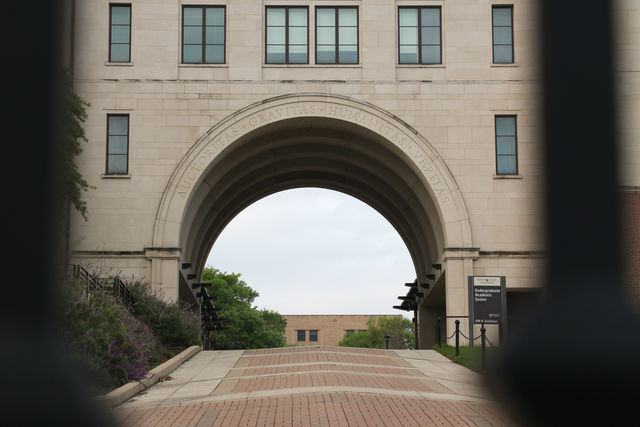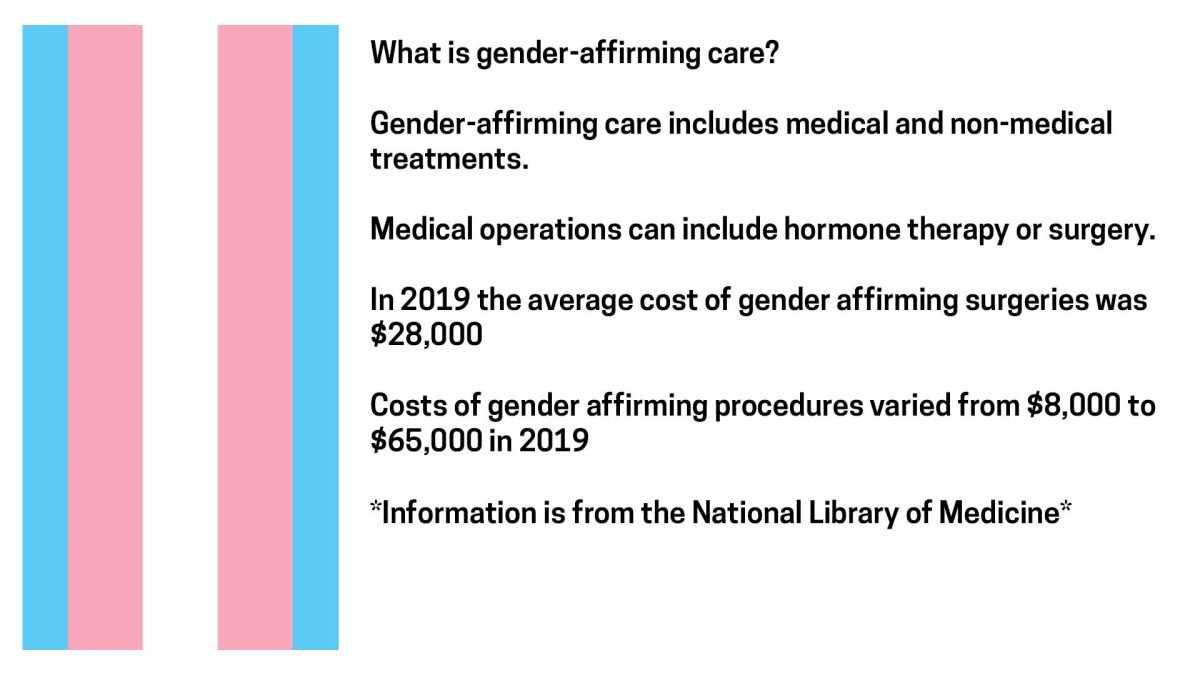Service animals can do a lot to help a person out, but what constitutes a service animal is sometimes a grey area.
Texas State alumna Chevelle Hunter was diagnosed with level four congestive heart failure and Idiopathic Pulmonary Arterial Hypertension and was told she only had seven months to live. Hunter was diagnosed on Jan. 7, 2015, and her biggest support system were her pets.
Hunter’s dogs provided support by alerting her when her blood sugar was low and when she might experience an anxiety attack.
Chubbs and Bandit, Hunter’s tiny-but-mighty Shih Tzus, quickly became popular in Centennial Hall. While these Shih Tzus are service animals, they sparked joy in students wanting to pet them.
Hunter said she was allowed to go anywhere with her dogs but there were times when people wondered if they were service animals because they were not clearly marked as such with vests. She always made sure to have their identification papers handy.
“They are amazing and intuitive when they know something is going on with you,” Hunter said.
On March 15, 2011, the U.S. Department of Justice defined service animals as dogs trained to help people with disabilities. These disabilities range anywhere from a physical impairment like blindness and difficulty hearing to anxiety attacks and post-traumatic stress disorder.
It also ruled that only dogs and in rare cases miniature horses are allowed to be service animals, but many people argue other animals qualify as service animals.
Although reports on Twitter claim that cats and even crocodiles are registered service animals, they are most likely emotional support animals.
There is a distinct difference between service animals and emotional support animals. While service animals are trained to work and perform a specific task for someone with a disability, emotional support animals only offer support by being present for their owner.
Michael Burns, senior lecturer, in the Department of Communication Studies has had some prior experience with service dogs in his classrooms including with Hunter. Burns said even though Chubbs and Bandit do not appear to look like service animals, he knows that in Hunter’s case they really are.
“I think sometimes we’re starting to blur those lines in terms of how we talk about it, and there’s a big difference between the two,” Burns said.
Animals assisting with anxiety attacks are considered a service animal according to the Americans with Disabilities Act. Chubbs and Bandit provide that support for Hunter by alerting her when an anxiety attack is about to happen so she can take steps to prevent or lessen the impact.
According to the Americans with Disabilities Act, staff is forbidden from asking about the documentation of the service dog or the disability of the patient. They are only allowed to ask two questions: “is the dog a service animal required because of a disability?” and “what work or task has the dog been trained to perform?”
The Fair Housing Act allows landlords to ask for service animal documentation when accommodating them, however, they are not allowed to inquire about the disability of the owner. In addition, the FHA requires landlords to accommodate and let service animals live with their owners even if the policy prohibits it.
Bruce Coonce, assistant director of the Office of Disability Services, said students with service animals are responsible for damage to any property belonging to the University or others.
“Behavior expectations for the service dog (in residence halls) are similar to those when the dog is in class or elsewhere on campus,” Coonce said. “The dog must be reliably housebroken and under the handler’s control at all times.”
Many people questioned the capability of Chubbs and Bandit to be service dogs because they were rescued, but Hunter said it took only two weeks to train Bandit and one to train Chubbs.
Today, Hunter is still walking through life after seven months with her dogs by her side.
“It was my prayer that they not only serve me, but that anybody who came in contact with them, that they emotionally supported them as well, and every time I brought them on campus I saw that gift,” Hunter said.
Categories:
Students strive with help of service animals
February 28, 2019
0
Donate to The University Star
Your donation will support the student journalists of Texas State University. Your contribution will allow us to purchase equipment and cover our annual website hosting costs.
More to Discover














